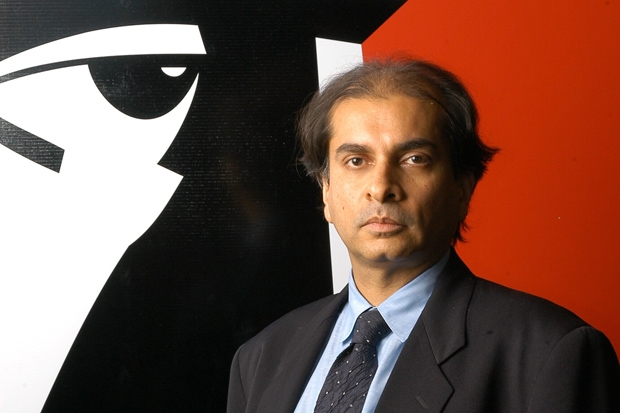The idea of using objects — salt, cod, nutmeg, silk — to turn history lessons into something popular and accessible has been around for at least a generation. It’s a great way to avoid complicated chronologies and the need to remember dates. A well-chosen object, or trading tool, can tell a narrative story that at the same time reflects the multicultural present, often showing unusual and previously unconsidered connections between places and peoples. Neil MacGregor brought the technique to Radio 4 with his brilliantly conceived and executed account of world history as told through 100 objects in the British Museum. That series (and his most recent application of the technique to the story of Germany, as seen through the Beetle car and the sausage) also proved that the 15-minute programme is radio’s greatest asset. It’s just long enough to impart something concrete, useful or entertaining without going beyond the recommended spell of undiluted infospeak before a pause, a change of tempo or tack is required. It’s also astonishing how much can be packed into little more than 2,000 words, and how much of it you can remember afterwards. On television it would take at least double that amount of time to put across the same information and ensure it sticks.
But how do you follow MacGregor? In a way he has squeezed so much understanding and insight out of the tangible things he has focused on, using them as a way into, and explanation of, the intangible, there’s nothing much else to say. At the same time there now seems to be no other way of telling history. Yet who else can do it with quite so much skill and intuitive understanding? Professor Sunil Khilnani has solved the problem by focusing Incarnations, his new series on India for Radio 4 (produced by Mark Savage), not on curry, chai or statues of Shiva but on 50 great personalities who, he believes, have been crucial to the Indian story.
‘Biography,’ he says, ‘has been under-used in the telling of Indian history’, which is often so bewildering with its succession of dynasties and religious cults. Writers on India too often talk about ‘the teeming crowd’ but forget to draw attention to the individuals they meet along the way. Khilnani believes the 50 characters he has chosen are a more useful way of getting listeners involved. His selection is anything but predictable. There’s an episode about Jinnah, for instance, but not about Nehru. ‘I chose individuals who interested me but also who could tell us something about their moment in time’ and how they are ‘incarnated today’.
Khilnani (who teaches at King’s College London India Institute) began his epic journey through Indian time in a slum in Mumbai. Or, more precisely, in a temple built by untouchables who eke out a living by collecting rubbish in the scrapheaps just beyond the temple doors. Why begin in a slum? Why in a temple dedicated to the Buddha? Khilnani explains it’s because we think of the Buddha as a moral thinker, a philosopher, but today he’s also a political figure. Those scrap dealers became Buddhists through the work of Bhimrao Ambedkar, who in the 1950s began preaching a political doctrine based on Buddha’s teachings about equality and his attacks on the caste system. We in the West look to the Buddha as an example of someone who extinguished his own personality in his search for enlightenment, but in that temple in Mumbai, says Khilnani, the statute of the Buddha (placed alongside one to Ambedkar) gives to the untouchables, the Dalits, a sense of their precious identity, a self-belief, in spite of their poverty and hardship.
His journey takes him north, south, east and west across the subcontinent. One of my favourite stories takes us to the Chandni Chowk Bird Hospital in Delhi just across the road from the Red Fort. A small boy in shorts emerges from a tall building carrying under his arm a black rooster swathed in bandages. His cockerel had been savaged by a dog and the boy had brought it to the hospital to be saved by the doctors. Inside the hospital, run on donations only, there are 400 cages in rooms cooled by ceiling fans, living out the Jainist gospel, which preaches that it’s our duty to protect this universe of living souls.
This week Khilnani was also in Delhi visiting a call-centre in an industrial suburb that was set up not by a multinational bank or telephone company but in memory of a man called Charaka, who lived at the time of the Buddha. He wrote a medical manual which, says Khilnani, is one of the great classics of not just medicine ‘but human history’, on a par with Archimedes and Euclid. Charaka’s mini-encyclopaedia sets out the principles of ayurvedic medicine, or the knowledge of how to live a long life. What’s fascinating now is that his tenets are being applied, little changed, in the call-centre as Indians with infertility problems, headaches, stomach pains phone in for a telephone consultation, using new technologies to search for an ancient solution to the ailments of 21st-century life.






Comments